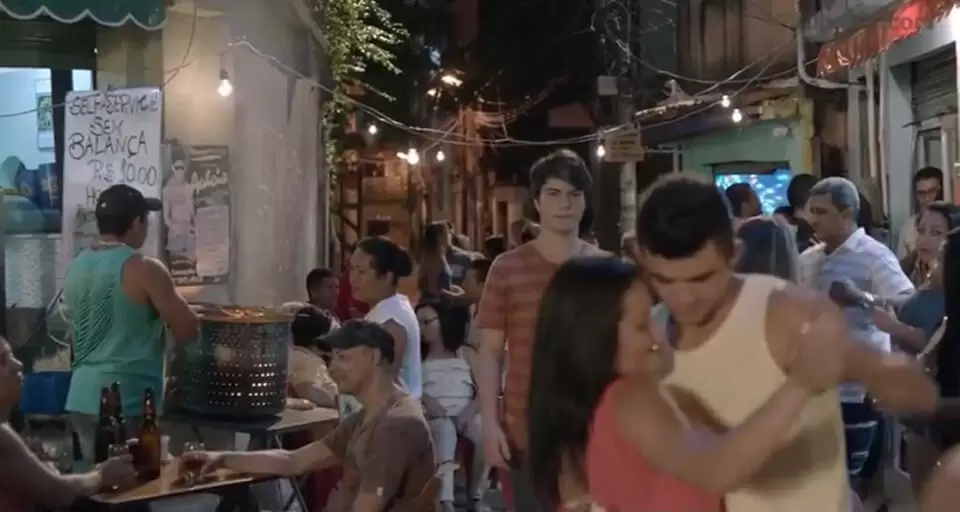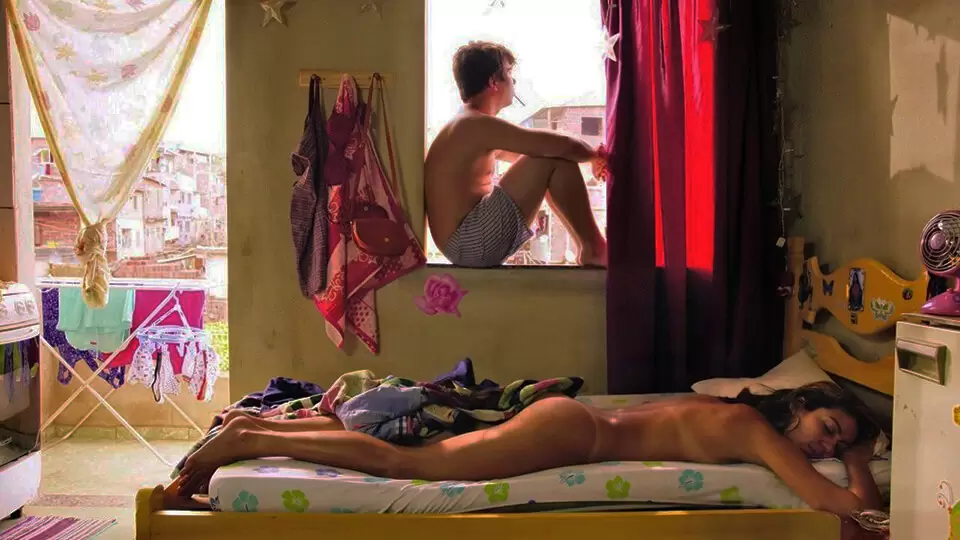You know parents who feel obliged to interfere in their children’s lives their whole lives. No matter how old their children get, they can’t stop violating their personal space; for them, children are a third limb that must obey their decisions. Jean’s father Hugo, with his delusions of being a concerned parent who thinks he is in the modern mold, exerts an uncomfortable authoritarian pressure within the family.
Nathalie, the other child in Hugo’s nuclear family of four, unlike Jean, is a neglected child whose stories are not even listened to at the dinner table. The family lives in their big house with their maid Rita, whom Jean sneaks into her room at night, their chauffeur Severino and Noemia, who is in charge of the kitchen. In the mansion where they live together as a modernized version of the seigneur-serf relationship inherited by the bourgeoisie from the aristocratic order, their relationship will not continue as they wish due to Hugo’s deteriorating economic situation.
Jean is unaware of the deteriorating financial conditions of his family. Hugo, who tries to hide this from his children and even his wife Sonia, eventually gives himself away. When a loan from Wilton, the husband of one of his wife’s tutoring friends, is discovered, Sonia realizes the seriousness of the situation and one of the solutions they consider is to fire their driver Severino.
Although they fire Severino, they tell their children that they didn’t fire him, that he left voluntarily to go to his family’s hometown. After Severino’s dismissal, Jean will have to take the bus to and from school. But Hugo and Sonia are so worried about this situation that they think about where Jean should sit on the bus and how much money he will have to pay if he is mugged. Although their son is seventeen years old, he is treated as if he were in elementary school because Rio de Janeiro is dangerous. These attitudes even cause Jean to feel uneasy about a young black man who sits next to him on the bus; a careful scene that shows how families, because of their own prejudices, impose racial and class distinctions on their children under the guise of protecting them.
One day, while Jean is riding the bus to and from school, he meets Luiza, who attends a public school. Luiza will be more than a small adventure for Jean, as she will have her first experiences of intimacy with the opposite sex.

Luiza is invited to a family dinner with Wilton and his wife. However, the fact that Luiza is seen as a member of the lower class and attends a public school is reason enough for Hugo and his friend Wilton to despise Luiza. The fact that the right of passage to university granted by the private school their own children attend is changed with the opening of quotas for students at the public school reduces their children’s chances of going to that university. The dinner turns into a disappointment for Luiza, who defends equality and fairness in education by standing against Hugo, who negates the new system in which successful students will be admitted to university regardless of whether they are in public or private schools. Jean, embarrassed on behalf of his family by their argument, finds the solution in fleeing to his room, taking Luiza with him.
The fact that Hugo has not yet paid his debt to Wilton becomes a topic of conversation between the two after dinner. Wilton, the real estate agent who hints that the debt can be easily paid by selling the house, forces Hugo to tour the house. While touring the house, they also come to Jean’s room, but they cannot enter because the door is locked. Hugo gets angry and starts banging on the door, even though he knows that Jean and Luiza are in the room. After his embarrassment at dinner, Jean, even angrier at having his door pounded on, opens the door and leaves the house with Luiza. As they open the door, Wilton starts taking pictures of the room as if there is no tension, and this is a good example of how selfishness and indifference dull the feelings of family and friendship of postmodern individuals, not only from a class perspective.
Jean spends a night in a hotel after moving away from home, but when she wakes up in the morning she realizes that they don’t even have enough money to pay for the hotel. His anger towards his father is further exacerbated when he sees Severino, who a few days earlier had gone to his hometown on the bus, driving another bus and arguing with his friends over his father’s failure to pay even a small debt to his friend. Jean comes home drunk one night and argues with his father after Rita, their domestic helper, is sent away, leaving them with no one to maintain their intimate relationship. Upon learning that Severino has been fired, Jean leaves the house and ends up in a ghetto neighborhood in Rio de Janeiro.

After finding Severino, Jean decides to stay there for a while and meets Rita at a street party in the evening. Unlike the time he spent some nights in her room during the time she worked in their house, this time Rita agrees to be with Jean.
Presenting an important cross-section of a young man’s turbulent life against the backdrop of the class divide, Casa Grande takes us through Jean’s journey of making his own decisions against the domination of his family. Jean, who is interfered with in all her decisions [1], from the temperature of her room to the university she will attend and the profession she will choose [1], will both experience a love affair in all its simplicity throughout the movie and take the first steps of becoming an adult by coming out of her shell and taking her own stance against her family.
In addition to the understated performances of its actors, Casa Grande has the power to tell the conflicts of individuals within the family and among friends with all its nakedness, and Severino, who sings at a party in the back streets of Rio de Janeiro, is reminiscent of Mahmut Fazıl Coşkun’s character Yavuz in Yozgat Blues.
Further Reading:
[1] Dropping Out of College, medium.com.

